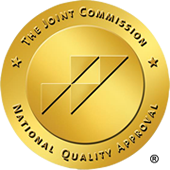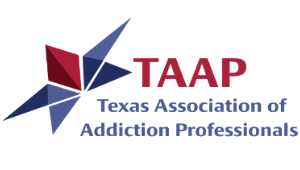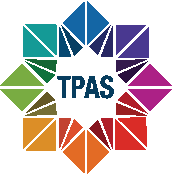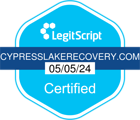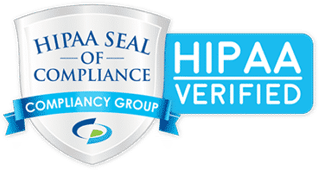Writing Therapy in Texas
Writing therapy allows each patient the ability to look deeper into any feelings they have of regret, guilt, fear, or obsession with addiction. In the recovery community, writing therapy is offered as an integrative therapy in combination with traditional counseling and group therapy since it can help increase motivation. At Cypress Lake Recovery in Texas, we encourage all types of writing, including creative writing and guided journaling each day.

Writing Curbs Relapse from Emotional Triggers
When looking for the cause of relapse in many people suffering from addiction, the problem is frequently deep emotion. Cravings for alcohol and addictive substances are part of the problem. But when we experience high levels of emotional stresses, then it is likely that relapse will occur if the individual is not prepared. At Cypress Lake Recovery in Texas, we teach people to write their feelings and emotions down on paper, whether it’s daily exercises or something creative as the base for their feelings. Writing therapy is an exciting field of treatment, because we find that individuals enjoy these quiet moments of reflection. Writing allows them to see a roadmap for treatments during their individual sessions.
visualize a sober future with writing therapy
Writing therapy helps patients see their goals and to imagine what life without substance abuse will be like after finishing their time in a treatment program. We often have our patients write about the future they see for themselves and to create a future model for their lives. We know that this future planning is part of the visual process in their mind’s eye. If a person can visualize themselves in the position of being sober and free from addiction, therapy has an opportunity to begin working on the addictive mind.
In Texas, writing therapy can allow deep-rooted subconscious thoughts to make their way into a piece of fiction. Working with therapists and those specializing in writing therapy can bring these pieces of interest into perspective for patients. The more we write positively about our futures and are allowed to reflect on the past, we can see success beginning to take hold and grow from within. We see this reflected as recovery time passes and individuals are open to sharing their work and talking about their journal entries or past events.
Contact Our Admissions Team Today
Writing Therapy is a Creative Outlet for Emotional Stresses

Testimonials
![]()
![]()
![]()
![]()
![]()
Regina
I am so happy that I chose Cypress to begin my recovery. I have suffered for years from depression, anxiety, panic disorder, and PTSD. The programs that are offered here at Cypress have been truly phenomenal in helping me recover. I also appreciated the professional staff that are here on duty 24/7, which helps create a safe environment. Cypress Lake Recovery uses effective “one on one” methods that meet each person’s individual needs because they evaluate and have a better understanding of your personal traumatic experiences. Thanks Sabino, I am truly grateful to you and the Cypress family.
![]()
![]()
![]()
![]()
![]()
J.A.
A beautiful facility! Staff sets the tone and kindness that residents easily follow. Thank you, Cypress Lake Recovery!
![]()
![]()
![]()
![]()
![]()
Pamela
The program at Cypress Lake Recovery works! I emerged from an accumulation of unrecognized emotions, issues of trust, and unresolved grief and loss. 35-days of effective integration of customized quality therapy reconnected my mind, body, spirit, and I am worth it! I had masked emotions and hurtful events for decades with alcohol. At Cypress Lake Recovery I safely focused deep within to unleash harmful secrets and self-degradation. Tools of recovery were practiced, not just presented. Integrative therapies were tailored to my circumstances, thus were effective. This residential program is like no other. For me, Cypress Lake Recovery delivered what was professed. I am forever grateful for this gift of healing.
![]()
![]()
![]()
![]()
![]()
Mike
Life changing experience. Wonderful staff. Wonderful program. Thanks for everything!
![]()
![]()
![]()
![]()
![]()
Darcy
It was great to begin my recovery in a group environment with so many knowledgeable nurses, therapists, BHT’s, and others around for support. The equine therapy, challenge course, family week, and daily therapies all work together seamlessly, allowing me to leave Sabino as a healthier and stronger person!
Writing Curbs Relapse from Emotional Triggers
Many people initially enter recovery with no idea of why they use addictive sunstances. They know that the substance is bad for them, that it’s caused them damage to their lives and relationships, and that continuing to use the substance will cause further harm to their lives. But the original motivation behind substance use may elude them.
Writing therapy exercises are designed for discovery, not perfection. Not everyone views themselves as a gifted writer. But writing therapy can be a valuable tool for personal investigation, without any expectation of literary perfection. Much like with cognitive behavioral therapy (CBT), writing therapy can be used to “gather evidence” for destructive or maladaptive beliefs. Upon seeing that there isn’t any, or that their fears may have been caused by something else, it can become easier for the individual to cope with negative emotions or experiences without the numbing power of drinking alcohol or taking in other substances.
Benefits of writing therapy:
- Reduces stress
- Lowers anxiety
- Reduces confusion of events
- Supports self-reflection
- Increases motivation
- Promotes sober living success
- Assists counselors and patients when looking for emotional concerns
- Boosts confidence in group therapy as we share our work
- Provides an emotional outlet that patients can use at home
- Boosts communication
- Promotes memory
- Improves planning and cognitive function
- Cultivates mindfulness

writing can help with emotional work
Writing therapy allows space for an individual to reflect on their addiction and confront hard questions about their addiction in a safe and contained environment. They can reflect on and track their emotions in an objective way, recording and noting information from a more removed perspective.
If an individual has struggled with addiction for a long time, they may not be easily able to separate their personal identity from substance use very easily. Writing therapy allows for space in a judgement-free zone to establish a narrative of their life that isn’t purely centered around substance use. This can improve self-esteem and help in developing tools to tolerate distress, not unlike in dialectical behavior therapy (DBT).
Within our patients at Cypress Lake Recovery, we see deep reflection happening every day and the inevitable aha moments surface. The gorgeous backdrop that nature provides here at Cypress is the perfect place for them to take their writing outside and enjoy the sunshine, the shade of trees and the comforting fresh air.
To learn more about our writing therapy sessions as an integrative therapy for addiction, call Cypress Lake Recovery for more information.
Nationally Recognized & Accredited
